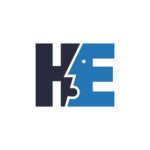Member in the Spotlight: Hermes Center
Hermes Center for Transparency and Digital Human Rights is an Italian civil rights organisation focusing on the promotion and development of the awareness and attention to transparency, accountability, freedom of speech online and, more in general, the protection of rights and personal freedom in a connected world.
This is the 9th article of the series “EDRi member in the Spotlight“, in which our members have the opportunity to present themselves and their work in depth.
Today we get to know more about the Hermes Center, which has been part of the EDRi network as a member since 2018.

Hermes Center Q&A
1.Who are you and what is your organisation’s goal and mission?
Hermes Center for Transparency and Digital Human Rights is an Italian civil rights organisation focusing on the promotion and development of the awareness and attention to transparency, accountability, freedom of speech online and, more in general, the protection of rights and personal freedom in a connected world.
2.How did it all begin, and how did your organisation develop its work?
The origins of Hermes can be traced back to the start of the GlobaLeaks project and its fundamental need for an organisation that advocates for privacy and digital human rights in Italy in an organised manner.
The Center has been formally registered in 2012 by bringing together the most active members of Italian privacy communities for years, all being part of the “Project Winston Smith” (PWS), the former “Anonymous Organisation”.
From its creation, Hermes immediately reunited a unique mix of activists, lawyers and hackers operating in the national and international context, with core activities ranging from software development of whistleblowing and anonymity tools up to very relevant digital rights advocacy activities like support of journalists, organisation of awareness-raising events, drafting of op-eds on these issues for national media, along with policy, advocacy and support for policy making.
Its main goals have been fully supported over the years by volunteers and by private donations for their works (conference presentations, free workshops, conferences and panel organisations).
Funding has mostly been provided by the Open Technology Fund in Washington and the Hivos foundation in Den Haag in form of research grants for its software development projects, GlobaLeaks and Tor2web.
3. The biggest opportunity created by advancements in information and communication technology is…
… the free flow of information, the possibility to connect instantaneously with people from all over the world to discuss and organise on common topics. Furthermore, these technologies can foster more transparency and accountability of the government and help citizens to defend their rights.
4.The biggest threat created by advancements in information and communication technology is…
… the pervasive state of surveillance that presents two different and somehow overlapping faces: surveillance capitalism by companies and police surveillance.
5.Which are the biggest victories/successes/achievements of your organisation?
We advocated for the adoption by the Italian Anti-Corruption Authority (ANAC) of an online whistleblowing platform using onion services, giving whistleblowers a secure way to report illegal activity and at the same time protect their identities.
With the same goals and similar activities, through a network of EU partners and mostly in collaboration with Xnet, the Center supported Barcelona City Hall, the Anti-Fraud Authority of the Catalonia, the Anti-Fraud Authority of Valencia and the Madrid City Hall in the adoption of free and open source technologies among which, first of all, the mentioned GlobaLeaks whistleblowing framework created by the Center which is now used worldwide by more than 300 organisations.
Additionally, together with other Italian organisations, we managed to push the Italian Ministry of the economic development (MISE) to revoke the export license of Area SpA, a well-known surveillance company.
6.If your organisation could now change one thing in your country, what would that be?
We would like to change the approach by politicians to the discussion around digital rights, and achieve greater civil society involvement.
7.What is the biggest challenge your organisation is currently facing in your country?
Last year, the Italian government introduced a new data retention law, extending the collection and retention of phone and telecommunication metadata to a period of 72 months. This measure is clearly against the CJEU case law on data retention. At the same time, we are concerned with government surveillance, which lacks a clear legal framework, and we are firmly opposing the adoption of electronic voting systems being discussed by the government.
8.How can one get in touch with you if they want to help as a volunteer, or donate to support your work?
You can reach us on Twitter, Facebook and visiting our website. There you can find our official contacts and those of our members. There is also the possibility of making a donation or volunteering.
Discover more about Hermes Center



